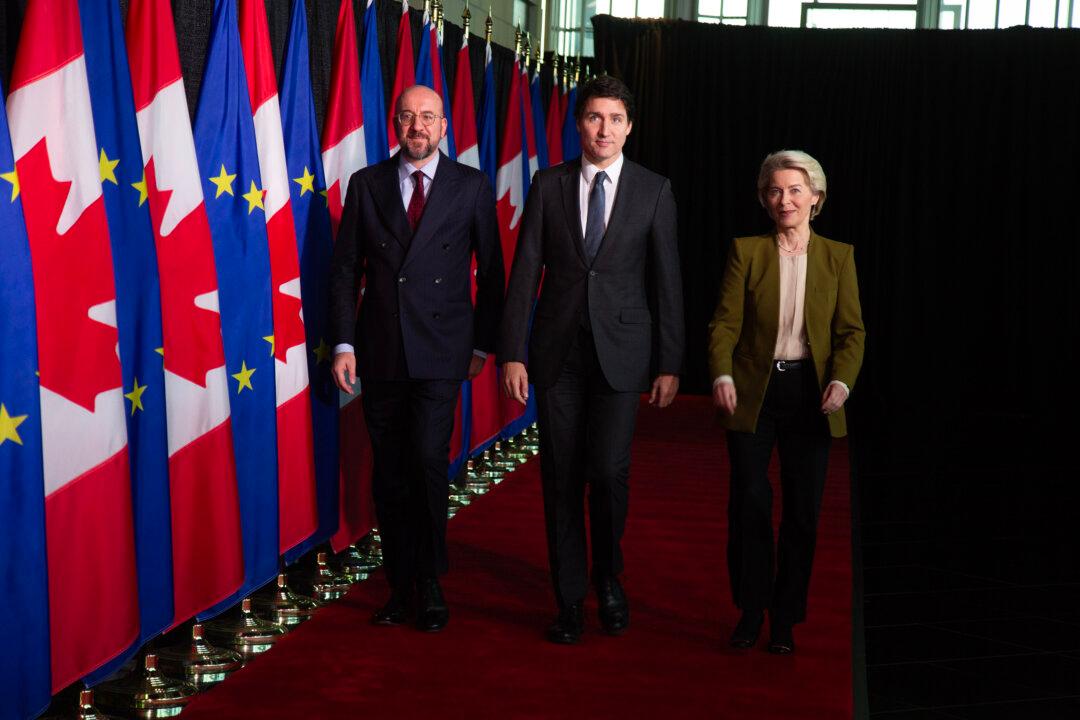Prime Minister Justin Trudeau has announced the launch of a digital partnership with the European Union to promote the interoperable use of digital credentials, counter disinformation, and cooperate on artificial intelligence (AI).
Details about the partnership were released Nov. 24 after Mr. Trudeau met with EU Commission President Ursula von der Leyen and EU Council President Charles Michel in St. John’s, Newfoundland and Labrador, for a leaders’ summit.





